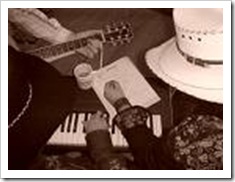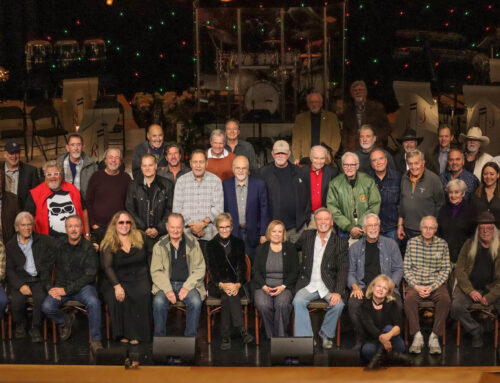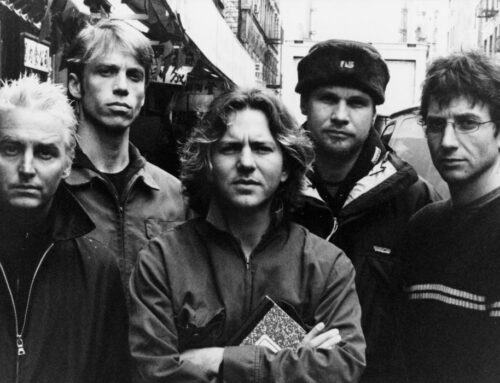See Jane.
See Jane write lyrics.
See Dick write melodies.
See Dick meet Jane.
See Dick and Jane combine their efforts and collaborate together to write a song.
This is one frequent story among Nashville’s songwriting community. On any given afternoon in Nashville, there will be innumerable co-writing sessions occurring at any given moment. Those collaborative efforts certainly produce most of the top hits on the country charts. The odds are, however, that at least 9 out of 10 of those songwriters will not know the implications of collaborating with another songwriter on the creation of a copyright.
Rarely do songwriters consult an attorney or enter into any form of collaboration agreement prior to co-writing. Rarer still is the songwriter that fully understands the important consequences that flow from co-writing with another songwriter.
If a songwriter does happen to consult about this issue, the first thing I tell them is that it is very much like entering into a marriage relationship. When two songwriters get together and collaborate on the creation of musical composition, each songwriter is a co-owner of and equal and undivided interest in the whole copyright, i.e. each songwriter co-owns 100% of the copyright – regardless of the relative extent of their respective contributions. Ownership is not equally divided, as is commonly thought — i.e. split 50/50 (that confusion comes from the fact that the royalties derived from the copyright are usually divided equally).
In the Dick and Jane analogy above, for example, Jane does not separately own the lyrics and Dick separately own the melodies. Dick effectively owns 100% of the song, including both the lyrics and music and Jane effectively owns 100% of the song, including both the lyrics and the music. The concept is very similar to the legal principle of tenancy in common. Unless they agree to the contrary in writing, each songwriter has the right to administer the entire copyright without consulting with the other songwriter, i.e., each songwriter may issue nonexclusive licenses to the entire copyright or issue first use licenses. The only obligation each co-owner has to the other is to account for any profits earned by the exploitation. A co-owner may not, however, without the permission of the other co-owner, transfer exclusive rights to use the work or transfer the entire copyright to a third party.
To be absolutely clear, the Copyright Act does not really define “joint authors,” but rather defines a “joint work” as a “work prepared by two or more authors with the intention that their contributions be merged into inseparable or interdependent parts of a unitary whole.” 17 U.S.C. 101. The key here is intention — i.e., the parties must intend that their work be integrated or merged to form a united whole at the time the work is created. The legislative history that accompanied the act specifically states that a work is “joint” if the authors collaborated on its creation. See H.R. Rep. No. 1476, 94th Cong., 2d Sess. 120 (1976); S. Rep. No. 473, 94th Cong., 1st Sess. 103-104 (1975).
Take for example the circumstance that arises when a person creates a poem, which is registered as a copyright. Then, later on, a second person takes the poem and modifies the words, adding music to create a song. The situation described is different from the collaborative effort in that there was no intent, at the time the poem was created, to merge it with the second creative effort. The second work, the song, is a derivative work, and its writer needs permission from the creator of the poem to create the derivative work.
While we’re on the subject of derivative works, each co-owner of a joint work may create derivative works independently of each other and without the permission of the other, and, without any obligation to share the royalties derived from the exploitation of the derivative work.
 Now, not to further confuse the issue but, in the eyes of the law, there is a difference between co-ownership in the copyright and split of the royalties. To get back to the Dick and Jane analysis, the typical understanding is that Dick and Jane would split any royalties received from the exploitation of the copyright on a 50/50 basis. It is important to understand once again, however, that this understanding can be modified with a written agreement between the co-writers. A songwriter whose reputation is strong enough can certainly request that he or she receive a greater percentage from the royalties, and even ask for a greater percentage ownership interest in the copyright. These types of exceptions, however, must be expressed in writing between the parties in order to be enforceable.
Now, not to further confuse the issue but, in the eyes of the law, there is a difference between co-ownership in the copyright and split of the royalties. To get back to the Dick and Jane analysis, the typical understanding is that Dick and Jane would split any royalties received from the exploitation of the copyright on a 50/50 basis. It is important to understand once again, however, that this understanding can be modified with a written agreement between the co-writers. A songwriter whose reputation is strong enough can certainly request that he or she receive a greater percentage from the royalties, and even ask for a greater percentage ownership interest in the copyright. These types of exceptions, however, must be expressed in writing between the parties in order to be enforceable.
Another complication arises in circumstances where a party merely contributes an “idea” to the collaborative effort. Is that person entitled to be a co-owner? I’ve had this issue arise in litigation. Two parties are collaborating on a song and have most of the song written. In walks a friend who is also a songwriter. He listens to the song and contributes an idea that is incorporated into one line of the song. He leaves, the song is finished, and becomes a hit. Does the third songwriter have an interest in the song? The answer to the question is inevitably determined by the particular facts and hinges on whether the third party merely contributed an idea, or actually contributed the expression of an idea.
As a final observation, let’s overlay the life of the copyright over the co-ownership of a collaborative work to give our brains a final flash fry if you will. Assuming the work to have been created after January 1, 1976, the life of the copyright is life of the author plus 70 years. In the event of a joint work, however, it is the life of the surviving author plus 70 years. What this means in realty is that one of the co-writers in a successful hit song, i.e., the last man standing, will eventually become co-owners with the heirs of the deceased songwriter, either in the form of a wife or a child.
Most songwriters, of course, are not thinking this far down the road when they make their daily co-writing appointments. But that’s the real thrust of this article. If you’re a songwriter, you should consider the possibility of a collaboration agreement. Most songwriters, I admit, do not think about this sort of thing because it cramps the creative vibe that needs to be created in a collaborative effort. This, in my opinion, is not a wise idea. At the very least — and this is not my recommendation — the writers should have some conversation about the consequences of their efforts. Considering the consequences, the best course of action would be to consult with qualified legal counsel and get a collaborative agreement drawn up and signed — or at least have a written statement of intent signed by both writers — at some agreeable point before the co-writing session begins, so as not to interfere with the creative efforts.
Technorati Tags: Songwriting , Music Lawyer , Music Row , Collaboration , Nashville , Music City , Copyright Law , Copyright Act of 1976 , Music Law , Entertainment Law , Entertainment Lawyer


















